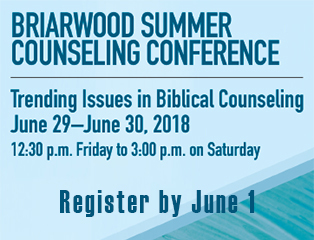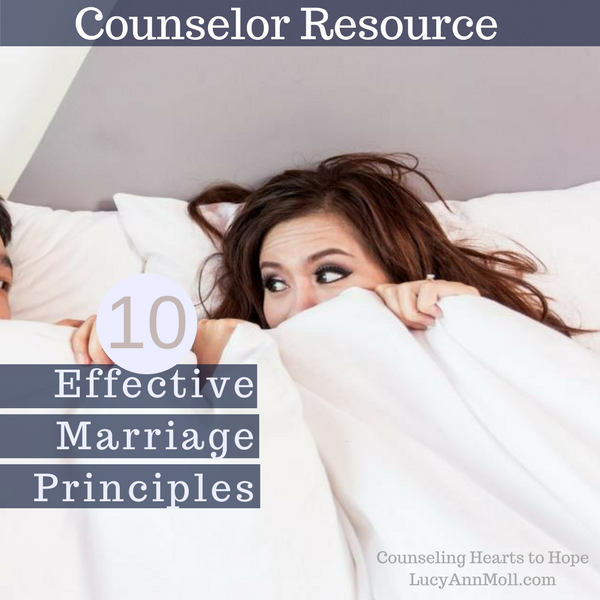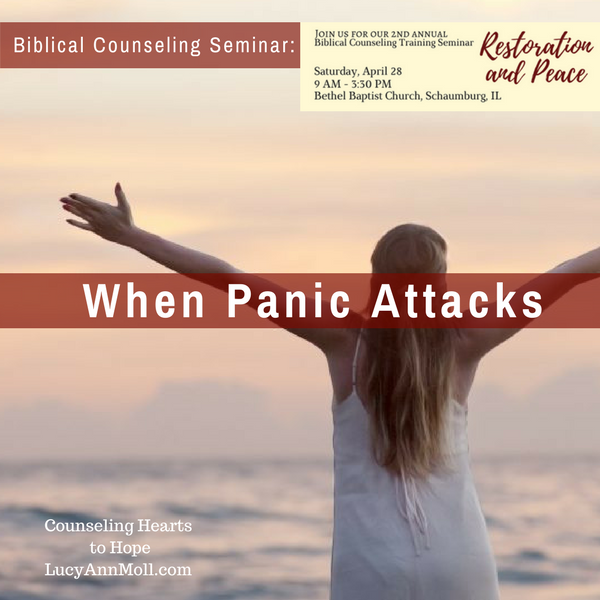
by Lucy | Aug 2, 2019 | biblical counseling, Counselor Resources |
No one’s life turns out according to plan, right? Not yours. Not mine. In fact, I wouldn’t have chosen parts of my story if I were writing it. Would you change parts of your story too?
This article appeared first here. As you read on, you’ll see I have the Best. Job. Ever. as a biblical counselor with Biblical Counseling Center. I get to counsel people all over the world from my home office through the wonderful technology of FaceTime/Skype/Zoom/email. Plus, I show train other biblical counselors to reach the hurting.

Wonderfully, the all-knowing Author composed every detail of my life and yours, putting us right where he wants us, giving grace to face whatever came our way. So here I am, a grandma and a doctoral student, meeting hurting women all over the world through the technology of video-conferencing. I am shepherding their hearts with compassion and the timeless truth of Scripture.
Helping hurting women sounds like a happy chapter in a full life, right? It is. But it comes by way of pain, as do many good things.
Childhood, Interrupted
Climbing trees, doing cartwheels, and going to school—these activities filled my days. My older brother and I got along all right, but my mom seemed preoccupied much of the time, chain smoking and watching “Day of Our Lives” and game shows. My dad rarely smiled. This saddened me.
Things got scary on “the night of the twisted chairs.” There was yelling and crying in the living room and when I went to check, my mom and brother shooed me to my bedroom. My dad had gone berserk, tossing and bending chairs.
The next day my parents’ psychiatrist met them at the hospital, and my dad eventually received the diagnosis of manic depression, which is the old term for bipolar 1. I remember thinking, “I’m the daughter of a psychotic.” Melodramatic? Yes! I was 14 and confused and hurting.
I learned I was vulnerable and had little control. But I eventually understood that God knows what he is doing even when I don’t.
God “Shows Up”
High school and college swooshed by. I switched my major from psychology to journalism, met my future husband, graduated, and married. One day I went to the library for books on decorating but came home with a thin volume called Basic Christianity by John Stott. I read it in a few hours.
Convicted that I was a hopeless sinner, I confessed my need of the Savior and received Jesus by faith alone. This is not what you’d expect of a good Catholic girl, is it? God had better plans. That God would have mercy on me rocked my world. He changed my life from the inside.
A few years later, my world turned upside down again. Out of nowhere, it seemed, panic attacked me and my heart beat triple-time, sweat beaded my forehead, and my knees felt wobbly like Jell-O. Long story short, my faith in Jesus and help from my doctor pointed me in the right direction. Retraining my thoughts by the Word, and lots of practice, provided what I needed to overcome panic attacks. (I share my story and solutions to panic in my mini-book Help! I Get Panic Attacks, scheduled to publish this fall.)
Through this trial, I learned God is with me, especially in terrifying panic, and changing me into the likeness of Christ.
A Call, Answered
Three children later, I was back in school studying pastoral care to women online through Western Seminary in Portland, OR, answering a call to shepherd the hearts of hurting Christian women. My hope: to reach the women at church and in the community, who don’t get involved in women’s Bibles studies, teas, and retreats … because they are hurting.
Later I discovered a book by Jay Adams, the founder of the modern biblical counseling movement, and got biblical counseling training too. Five years ago, I joined Biblical Counseling Center’s staff, continuing to shepherd hurting women and families in person and online.
And forever a student, crazy me is on schedule to receive my doctorate in biblical counseling in May. I tease my husband that soon he’ll have to call me Doctor Lucy. He thinks that’s funny.
I and many biblical counselors anchor our ministries on 2 Corinthians 1:3-4.
“ Praise be to the God and Father of our Lord Jesus Christ, the Father of compassion and the God of all comfort, who comforts us in all our troubles, so that we can comfort those in any trouble with the comfort we ourselves receive from God.”
Truly, God is the Author writing our stories according to his best plan. For hurting women, he provides other women who lovingly shepherd them, listening deep and giving counsel that encourages them to wholeness in him. And so, it seems, God planned my story so I could meet hurting women in theirs. He’s not finished with us yet, right? I wonder what’s next.
P.S. Many people contact me for counseling for panic attacks, phobias, OCD, post-traumatic stress, and other life stresses. If you or someone you love might want counseling, simply contact me via this easy form. Reduced fees available. 🙂


by Lucy | Jun 5, 2019 | biblical counseling, Counselor Resources
Moral relativism — it defines topsy-turvy postmodern culture and is coming to a counseling room near you. How might a counselor think compassionately about such things? This article appeared first here at The Biblical Counseling Coalition.

Remember the blind men and the elephant? Six blind sojourners come across different parts of an elephant in their life journeys and each, in turn, creates his own version of reality based on his experience. One proclaims the elephant is a wall, another says it’s a snake, another a spear, and so forth.
This illustration is the poster child of moral relativism, which insists that “what’s right for me is my truth.” It asserts that personal truth is the highest form of truth. Moral relativism dominates our culture and has likely barged into your counseling office, as it has mine, noisily demanding that one must “live their truth.”
Moral Relativism Is Old News
It reaches back to the Garden. The smooth-talking serpent questioned the Truth-giver’s truth—that Adam and Eve may eat from all the trees but one, or “you shall surely die” (Gen. 2:17)—and the first couple gobbled Satan’s lie.
Adam’s new not-true “truth” sent him running and hiding and blaming. “I heard the sound of you in the garden, and I was afraid, because I was naked, and I hid myself” (Gen. 3:10). He hid because of the shame of his sin of disobedience. Then he compounded his lie in blaming the woman, who in turn blamed the serpent.
God hates lying. Proverbs 12:22 declares:
“Lying lips are an abomination to the LORD, but those who act faithfully are his delight.”
Its opposite is truth, of course. God determines the truth. Not me, not you, and not our counselees.
Moral Relativism in Modernity
Back in the ‘70s, I believed the lie of moral relativism packaged as a pro-choice argument. I admit this with great embarrassment. My friend Ellen was “with child,” thanks to her college boyfriend, a condom failure, and her belief that sex before marriage was “just fine, thank you.”
The good Catholic girl that I was, I thought abortion was wrong, and “I’d never get one,” but “if it’s right for you, then that’s your choice,” and thus I supported her decision. A mutual friend and I checked out the abortion clinic with the Better Business Bureau before she went because we cared about her.
And the baby? What baby? We all tried to forget. Moral relativism had won.
Now let’s zip to today and survey the cultural landscape: drag kids, transgenderism, an alphabet soup of gender “expressions” (whatever that means), pedophilia disguised as man-boy love, and of course abortion on demand through all the months of pregnancy. And when abortion “fails,” infanticide.
Moral Relativism in the Counseling Office
A little while back, the parents of a teen girl named “Kaylee” wanted me to talk with her about her older brother’s decision to transition to be “a female.” He had begun hormone therapy and was considering radical surgery to remove his genitalia. There was also talk of breast implants.
Equally confusing, my counselee’s brother was dating a bisexual. A man transitioning to a woman was dating a guy who admitted to liking men and women. Weird, right? Yet my counselee took it in stride. “She’s happier now,” Kaylee remarked, using the appropriate progressive pronoun. “She’s who she wants to be, who she’s meant to be.”
The parents professed Christianity as did Kaylee. The mom wasn’t outwardly upset over their son, but the dad seemed embarrassed and said so. Their concern now was making sure Kaylee was fine with their family’s new not-true truth while also admitting they walked a road where up is down and right is wrong.
Not surprisingly, when Kaylee and I read Scripture verses and discussed their meaning, she—like many counselees—was quick to say, “What this means to me is ….” That little prepositional phrase “to me” is a sign of our moral relativistic times and a bane to Bible study.
An Important Place to Reclaim Truth
As we open our Bibles and read Scripture, there may be no better place to reclaim truth in the counseling office than proper Bible study. Today’s prevailing cultural message to “live your truth” is demanding and noisy and a lie. It lures people, including Christians, to live whatever way feels right to them (Prov. 14:12).
But historical-grammatical Bible study provides a process to understand a text as God intended, protecting us from falling into error. Many excellent volumes have been written on how to study the Bible. I encourage you to ask your pastor or a spiritually mature Christian friend for recommendations. One of the many excellent resources is John MacArthur’s How to Study the Bible (Chicago: Moody, 2009).
Along these lines, let us start with three primary questions we can encourage our counselees to ask as they read a passage of Scripture:
- What does it say? (Not what does it say to me.)
- What does it mean? (Not what does it mean to me.)
- How should it change me? Here, the “me” is spot on and we might follow it up with these additional questions:
- What does this passage teach me about God?
- How does this aspect of God’s character change my view of self?
- What should I do in response?
Moral relativism is our culture’s precious grandchild now. It gets a pat on the head and sugar for supper. It demands its way like 2-year-old. And it barges into the counseling room. So how might you quiet it? Feed your counselee Truth.
Questions for Reflection
Which Bible study process helps your counselees have a correct understanding, interpretation, and application of Scripture?
Describe a time when you saw moral relativism play out in the counseling office, classroom, or church lobby. What was your response?
How are you guarding yourself and your family in today’s moral relativistic times?


by Lucy | Mar 12, 2019 | biblical counseling, Counselor Resources, Tuesday tool
Use sandwich communication with kids to lovingly and effective engage conversation. This tool is helps make communication with loved ones … a joy.
Based on a biblical model, the sandwich communication tool helps you effectively communicate — even correct your child — by beginning and ending with the positive.
I recently watched a dad correct his daughter three or four times in a 10-minute conversation that left her with a downcast spirit.
Her expression said, “Can’t I do anything right?” She appeared to melt into the wall and disappear.
Results—yes. Good results—no!
This article by Sherry Allchin, MA, appeared first here on Biblical Counseling Center, which gave permission to reprint. Sherry is among the dozens of female biblical counselors listed on Heart2Heart Counselor Directory. See her contact info. She counsels in by Skype and in person in South Carolina. Edited for length.
Begin with the Positive
When communicating anything to your child, but especially a correction, begin with a positive. When Christ corrected the churches in Revelation 2 – 4, He began by telling each of them what they were doing right.
Each time we approach our children (even spouses!) we need to affirm their positives, what they do w\ell.
Let no corrupting talk come out of your mouths, but only such as is good for building up, as fits the occasion, that it may give grace to those who hear. Ephesians 4:29, ESV
EXAMPLE: Let’s say a child is getting his tempera paints all over the place. Many parents might say, “You’re so messy; why can’t you do it like Joni?” This message communicates, “You are not as good as Joni. Messy is your nature so I guess you’ll never change.”
But a gospel-motivated parent might begin with a positive part of sandwich communication, such as “I like the colors you are choosing for your picture. Here, let me give you a paper towel to clean up some of those drips. I can’t wait to see your finished picture!”
The positive approach gets the child’s attention that he is doing something of value to you as well as to him, that he really does have some good qualities even though they may still need some polishing.
Time for the Negative (or Correction)
Now the middle part of sandwich communication.
I always hated it when a teacher told me I had it wrong but left me no clue about how to fix the problem. Some children are left feeling that same way by parents.
Yes, they know it was wrong, but they still don’t know what to do to correct it. How do you correct being a lazy slob if you’re told that’s who you are? How do you correct a math problem you don’t understand?
A child made in the image of God has wonderful potential to change any wrong thing she is doing, and she needs to be reminded of that continuously in the process of corrective sanctification.
So a child is not a lazy slob; she is failing to make her bed before breakfast or take out the garbage when asked. That is a problem that can and should be corrected. “This is what I want you to correct and how I want you to do it.”
Finish the Deal with a Positive
The last part of sandwich communication ends in a positive.
You might say something like,
You are a strong boy and very capable of carrying your load around our home.
And because we love you and want to train you for life, we must insist that you do ______ by dinnertime or face the consequences of ______.
We are confident you will choose to make a wise choice that honors God and your parents because we have watched you growing in your love and obedience in so many ways.
Yes, sandwich communication quickly reaches the heart of most children (or adults, for that matter). But if a child’s spirit has already been deeply wounded, it may take some consistency on your part for the child to respond well. He must come to believe he has intrinsic value because he is made in the image of God and because he can change to become more and more like Jesus in everyday life.
Practical Help
- Ask the children in your life if they think you are made at them “rarely,” “sometimes,” or “often.” If the answer sometimes or often, please ask their forgiveness. Remember, man’s anger never produces God’s righteousness.
- Recognize that your anger is usually about what is inconveniencing you, not what your child truly needs to correct.
- Plan the “Sandwich” that you will give your child, first a positive related to what needs correcting or overall positive character you see in him. Then carefully word the Correction in a way that guides him to biblical change for God’s glory. Finish the Sandwich with the Bread of Life, God’s love for him, your love for him and your confidence in his ultimate maturity (Hebrews 12:5-10).
Next Step
Consider getting biblical counseling for you and your child if home is a war zone. Contact us and learn more about biblical counselinghby Skype.
Counseling Hearts to Hope,
Lucy

by Lucy | Jun 13, 2018 | biblical counseling, Counselor Resources, emotions, relationships, thoughts |
Women and porn: pornography is not a guys’ problem only. It’s growing exponentially among women, including Christians. In fact, every week or two I counsel yet another woman who struggles with porn.
Skewed Statistics
Truth be told, the statistics on women and porn use fail to tell the full story.
Click & Tweet!
Conservatively, one in five women and girls consume porn. The problem with the numbers starts with defining pornography. Yes, porn includes explicit photos and video. This is hard-core pornography. But there’s other forms!
What about erotica like the 50 Shades of Grey novel? Or how about racy romance novels? Or a Victoria’s Secret catalog? And does sexual fantasy count? Yes, yes, a hundred times yes.
In the words of author-blogger Jessica Harris, a former porn addict:
Pornography isn’t just stored on a computer or found in the pages of a magazine. It buries itself in the mind as memories. In some ways, your own body can serve as a source of pornography.
You may find this blog post uncomfortable to read. Perhaps you’ve already clicked close (and aren’t reading this now). Maybe you even unsubscribed. 🙁 But this topic is essential to know: Your daughters and granddaughters run into pornographic enticements. Every. Single. Day.
Generation Gap!
When it comes to women and porn, there’s a huge difference in porn use and age. Blame the Internet and smart phones.
Says Harris:
Walk into a room with a multi-generational group of men, and you can pretty much assume that the stats on male porn use are going to hold true throughout the generations in the room. Sure, the Baby Boomers grew up on Playboy and the Millennials grew up on smart phones, but still there’s this idea that pornography has been an issue for men for generations.
That is not the case for women.
If I walk into a room with a multi-generational group of women, my first and foremost concern is always to bridge the gap. Because the Baby Boomer women grew up in a time when pornography wasn’t really accessible to them. Nor was it made with them in mind. Their husbands might have been slinking around with magazines stuffed in brown paper bags, but they were not.
Millennial women, on the other hand, came of age at the time of the internet. Not only could we stumble upon a man’s porn stash, now we could access new content all on our own.
Click & Tweet!
Videos even. Without having to subscribe to the adult channels on cable.
Here’s her full post on what the statistics are NOT telling you about women and porn.
Change Is Coming
 If you hope to gather information about women and porn, you might Google “women and porn” or choose a variation: porn use among women, statistics on women addicted to porn, and so forth. And you’ll get very few hits.
If you hope to gather information about women and porn, you might Google “women and porn” or choose a variation: porn use among women, statistics on women addicted to porn, and so forth. And you’ll get very few hits.
But this is changing.
Among the few resoures is Heath Lambert’s podcast on “Women and Pornography.” You can hear the podcast or read the transcript. There have been a few chapters in biblical counseling books and a booklet or two. I hope to write a book on this subject, God willing. I have a heart for women hooked on porn. Even though it isn’t my story — anxiety and panic attack is part of mine — porn had its hooks in my brother and figures into his binge drinking and also his death. But that’s a story for another time.
Conference Talk on Women and Porn
 At the end of June I have three talks at Briarwood Summer Counseling Conference: “Trending Issues in Biblical Counseling.” One talk is on self-injury (i.e., cutting and other forms of self-mutilation). And another is on freedom from panic attacks. The third is “Breaking the Bondage of Pornography” (a women only talk). There’s a similar talk for pornography and men.
At the end of June I have three talks at Briarwood Summer Counseling Conference: “Trending Issues in Biblical Counseling.” One talk is on self-injury (i.e., cutting and other forms of self-mutilation). And another is on freedom from panic attacks. The third is “Breaking the Bondage of Pornography” (a women only talk). There’s a similar talk for pornography and men.
I am so happy that I get to speak to female counselors on this topice. With the explosion of internet availability, an ever-increasing number of women are seeking help with porn/masturbation. They often see no way out and have deep guilt and shame. Click here to see the schedule.
Counseling Hearts to Hope,


by Lucy | May 2, 2018 | biblical counseling, Counselor Resources, relationships
Effective Marriage Principles help couples know what a God-honoring marriage looks like and assist counselors in counseling hurting couples. Biblical counselor Bob Kellemen includes a link to a one-page PDF document too. Use this Counselor Resource in your own marriage or with the couples you counsel. These 10 effective marriage principles appeared first here on Bob’s website and is used with permission.

Gospel-Centered Marriages
I’ve done a lot of marriage counseling lately. Consistent biblical themes keep arising. I’ve collated them into 10 effective marriage principles for couples and for marriage counseling. The first 8 principles are for both the husband and wife. The final 2 are more specifically for the husband (# 9) and the wife (# 10).
Notice that the last two principles are where a lot of couples and a lot of counselors start—with biblical roles in marriage. Obviously, this is a vital biblical area. Yet, Paul did not start Ephesians with Ephesians 5:21. He started it with gospel-centered principles of salvation, daily Christian living, and relationships. Then, building upon those foundations, Paul moved toward the roles, responsibilities, and callings of husbands and wives. With these 10 effective marriage principles, I’ve sought to do the same—laying out a gospel-centered foundation for marriages and marriage counseling.
I now regularly hand out these 10 effective marriage principles as a one-page guide for the couples that I’m counseling. Feel free to do the same—with small margins, you can make these 10 principles all fit on one page! To prove it, click here for your one-page PDF document. You can send it to others using this shortened link: http://bit.ly/MarriageMC10
Here Are 10 Effective Marriage Principles
1. Keep Putting Jesus First; Keep Loving Jesus Most
Matthew 22:35-38
Love God most with your most: with all your heart, soul, mind, and spirit. Repent of anything you put on the throne above Jesus. Put Jesus before yourself. Put Jesus before your children, your work, your ministry. And put Jesus before your need to be right. Put Jesus first. Love Jesus most.
Click & Tweet!
2. Be Empowered, Changed, and Comforted by the Trinity
Ephesians 5:18; 6:10-18; 2 Corinthians 1:3-8
Paul surrounds his marriage counsel with Ephesians 5:18 and 6:10-18. Spouses change as they are filled by the Spirit (5:18). Marriages change as spouses become more like Christ in Christ’s resurrection power (6:10-18). In your marital hurts, be comforted by the Father of compassion and the God of all comfort (2 Corinthians 1:3-8).
3. Remember Who Your Enemy Is—Satan!
Ephesians 6:11-12
Your struggle is not against your spouse. Your enemy is not your spouse. And your joint enemy is Satan! He wants to destroy your marriage. Join together as spiritual warriors to defeat Satan in the Lord’s mighty power.
4. Take Personal Responsibility
Joshua 1:6-9; Philippians 4:9
You’ve been given more spiritual tools than most people on the planet. Use them. Be mature and courageous and do what God commands. What you’ve heard in the Word—do! Put it into practice!
Click & Tweet!
5. Take the Log Out of Your Own Eye, Confess, Repent
Matthew 7:3-5; James 4:1-4
Don’t focus on what your spouse is doing wrong or not doing right. Remember Matthew 7:3-5 and take the mote out of your eye. Recall James 4:1-4—the real problem in any marriage resides within your heart. Ask God to reveal any sins to repent of. Ask forgiveness of your spouse.
6. Forgive Each Other, Reaffirm Your Love, Comfort Each Other
2 Corinthians 2:5-11
Your spouse will never repent perfectly or be perfect. Still, forgive them as Christ forgives you. Still, reaffirm your loyal love to them as Christ loves you. And still, comfort them as the God of comfort comforts you. Surrender bitterness. Refuse to keep track of wrong. Love. Start afresh every morning as God renews His faithfulness every day.
7. Speak Life Words, Not Death Words to Your Spouse
Ephesians 4:29; Proverbs 18:21
When your spouse hurts or fails you, do this:
1.) Find comfort in Christ.
2.) Seek hope in God.
3.) Take the mote out of your own eye.
4.) Forgive the mote in your spouse’s eye.
5.) Love like Christ. Say this, “My spouse is doing ______. I’m going to respond like Christ by thinking and doing ______.” Speak life-giving, helpful words about and to your spouse—words that nourish them according to their need, that it will benefit your spouse.
8. Put the Interests of Your Spouse First in the Power of Christ
Philippians 2:1-5
When your spouse doesn’t meet your need, be filled by the One who meets your every need—the Trinity Who encourages you, is compassionate with you, values and affirms you. Out of His fullness, choose to fill your spouse by putting their interests before your interests. Put your spouse first.
9. Husband: Shepherd Your Wife with Christ’s Sacrificial Love
Ephesians 5:22-33; 1 Peter 3:7
Husband, your #1 marital calling is shepherding your wife.
Click & Tweet!
Shepherd her like Christ shepherds the church: with death-to-self, sacrificial, agape, mature, other-centered love. Ask God to empower you to live out Ephesians 5:22- 33. Seek to know your wife richly and to treat her with respect as a spiritual heir with you (1 Peter 3:7).
10. Wife: Love Your Husband Like the Church Loves Christ
Ephesians 5:22-33; 1 Peter 3:1-6
Wife, your #1 marital calling is to love your husband with respecting love (Ephesians 5:33). Mature respect encourages strengths, affirms gifts, and gently, humbly challenges wrongs. Mature respect speaks the truth in love to help your husband to keep growing in Christ—because you are for your husband and believe in Christ’s work in him. Ask God to use your godly life to draw your husband closer to Christ (1 Peter 3:1-6).
Click & Tweet!
Counseling Hearts to Hope,


by Lucy | Apr 23, 2018 | biblical counseling, Counselor Resources
SEMINAR: I am super happy to speak on the intense fear experience our culture terms “panic attacks” at the 2nd Annual Biblical Counseling Training Conference on Saturday, April 28. If you’re in the Chicago area, why don’t you join me?
One reason I’m excited to share my seminar at the conference is my personal experience as a former panic attack sufferer. Please note: former! And another reason is my experience counseling of women and children plagued with anxiety, worry, and fear. To overcome panic, I had tried all of the usual solutions — even tapping on pressure points on my hand. (That was a weird experience.) Then I turned to biblical solutions. Renewing my mind with God’s transformational truth led me away from me and to Jesus.
My seminar is part of BCC’s biblical counseling training conference just outside Chicago. I invite you to come. It begins at 9 a.m. but come a lttle early to check in. The beautiful venue is Bethel Baptist Church, 200 N. Roselle Road, Schaumburg, IL Also you can register on Saturday but it’s a little costlier. Online registration: $30. Walk-in registration: $40.
The Schedule
Morning Keynote: Restoration That Works, Dr. Nathan Millican
“Restoring Conversations” are workshops that helps us live out the call to be instruments of restoration and peace in one another’s lives. How does this look in real life conversations? These workshops will help you understand how to bring biblical wisdom and practical truth together in restorative ways.
Morning Workshop 1: 10:15 to 11AM
- Biblical Counseling Basics 1, Dr. Ron Allchin
- Helping Adoptive Parents, Sherry Allchin
- Engaging Mental Illness, Brandon Lowery
- When Panic Attacks, Lucy Ann Moll
- Relating with Difficult People, Carol Wright
Morning Workshop 2: 11:15 to Noon
- Biblical Counseling Basics 2, Dr. Ron Allchin
- Using a Life Story Tool, Dr. Donna Hart
- After Infidelity, Brandon Lowery
- When Panic Attacks, Lucy Ann Moll
- Relating with Difficult People, Carol Wright
Optional Seminar for Pastors/Elders
10:15-12:15 Step by Step Guide to Starting a Counseling Ministry – Dr. Tim Allchin
Afternoon Keynote: Relational Peacemaking, Dr. Tim Allchin
Peacemaking Tracks are designed to take biblical peacemaking principles and learn how to apply them to specific relationship contexts. Each workshop will have tools, handouts and interaction about peacemaking strategies.
Afternoon – Workshops 2:00—3:30
- Tools for Difficult Marriages, Dr. Ron Allchin and Sherry Allchin
- Peacemaking in Church Conflict: Dr. Tim Allchin
- Your Heart in Personal Conflict, Dr. Donna Hart
- Peacemaking in Parenting: Brandon Lowery
If you have questions or want a complimentary consult, feel free to contact me. I also hope to see you at my seminar!
Counseling Hearts to Hope.
















